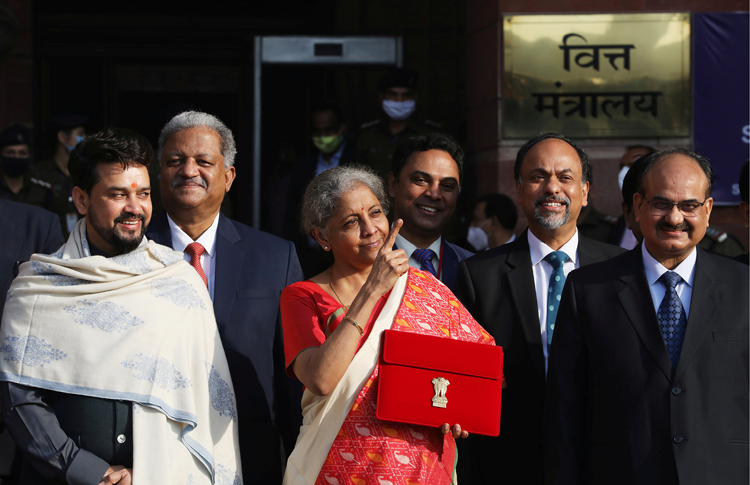
In India’s 2021 budget, Finance Minister Nirmala Sitharaman proposed merging the four acts that presently govern capital markets and securities, namely the Securities and Exchange Board of India Act, 1992 (SEBI Act), the Depositories Act, 1996 (Depositories Act), Securities Contracts (Regulation) Act, 1956 (SCRA) and Government Securities Act, 2007 (Government Securities Act), to form a single securities markets code.
WHY IS THERE A NEED FOR A CONSOLIDATED CODE?
While the SEBI Act provides for the setting up of a Securities and Exchange Board of India to protect the interests of investors in securities and to promote the development of and to regulate the securities market, the objective of the SCRA is to prevent undesirable transactions in securities by regulating the dealings in securities.
On the other hand, the Depositories Act regulates the depositories in securities of the country, while the Government Securities Act allows the Reserve Bank of India to amend the laws governing the government securities.
Naresh Thacker, partner, and Abhiraj Arora, associate partner, at Economic Laws Practice (ELP) say that the present acts have outlived their utility and are not sufficient to deal with changing dynamics. For some time now, stakeholders, have demanded that an efficient, lean, and modern framework be put in place which is in tune with the current requirements.
While it is the first time that the government has planned for the consolidation of SEBI regula-tions, it is not the first time that a common code has been proposed.
“In 2013, the Financial Sector Legislative Reforms Commission, under the chairmanship of retired Hon’ble Justice B N Srikrishna, had proposed repealing of various financial acts and establishment of a common Indian Financial Code (IFC). The idea behind IFC was to introduce a common code to regulate the financial market, to govern the aims, powers, and interplay between financial agen-cies, and to bring in much-needed organisation and efficiency to the financial regulatory framework,” Thacker and Arora say. “The idea behind the single securities code is similar, arguably, even iden-tical to the IFC and therefore, the legislature would be well advised to adopt some of the impor-tant provisions recommended by the Financial Sector Legislative Reforms Commission.”
WHAT ARE SOME OF THE LIKELY EFFECTS OF THE CONSOLIDATION?
As the market still awaits the finer details of the act, experts are of the view that a single code will provide more operational effi-ciency. According to Thacker and Arora, as with any law, a consoli-dated securities market code will enable a simpler legal frame-work, lead to a lesser compliance, and cost burden, be more busi-ness-friendly and facilitate ease of participation in the securities market.
“A consolidated securi-ties market code will result in removal of duplication and also reduce overlap between the acts,” Thacker and Arora note. “This will provide clarity to all stake-holders, including market interme-diaries and the investor commu-nity at large and remove possible conflicts in the regulatory frame-work. Consolidation of multiple laws, ordinances, guidelines, regu-lations and circulars will provide much-needed relief to corporate India.”
WHAT ARE THE CONCERNS THAT STILL NEED TO BE ADDRESSED?
While many are optimistic about the impact of the single code, there are some concerns which still need to be addressed. According to Thacker and Arora, while the single code is likely to prove beneficial, it comes with its share of trepida-tions like the ambiguities that are currently present.
Citing an example, they say: “There is no specific provision under the SCRA where any order passed by a clearing corporation can be challenged before the Securities Appellate Tribunal (SAT). However, in IL&FS Securities Services Ltd. Vs. NSE Clearing & Ors., the SAT held that decisions of clearing corpora-tions are appealable under Section 23L of the SCRA. This is one area where a gap exists, and more clarity is required.”
In another instance, Thacker and Arora also state that the Depositories Act does not provide for an appeal against decisions of depositories. Currently, appeals lie only against orders passed against a depository. Hence, they believe that more clarity is necessary to understand the powers of appeal against an order of a depository.
To contact the editorial team, please email ALBEditor@thomsonreuters.com.


